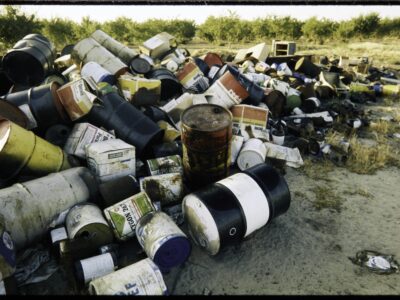What might the election mean for environmental law?
Three quick thoughts on the implications of the election for environmental law in general, and greenhouse gas regulation in particular:
(1) Congress will matter less. A stronger Democratic majority in the Senate and a reelected Obama mean that the courts are probably the only thing standing between full implementation of EPA’s carbon dioxide regulations under the Clean Air Act. It will be that much harder for Republicans to peel off Democrats in the Senate to strip funding or otherwise block those regulations, since the Democrats majority in the Senate has expanded. I can identify only six Democratic senators (Rockefeller and Manchin from West Virginia; Begich from Alaska; Landrieu from Louisiana; newly elected Heitkamp from North Dakota; and maybe Baucus from Montana) who are likely to vote for any such efforts. That’s still well short of what’s needed to end a filibuster of a stand alone bill. It’s possible that some sort of rider could be added to an appropriations or budget bill that has to pass (and therefore a majority vote is what matters), but getting all six to defect on such a high stakes vote seems unlikely. (And you would need all six, since a tie would be broken by Vice President Biden.) And there’s still the possibility that Obama would veto any bill to strip EPA authority over greenhouse gases. As for the courts, they have already upheld the tailoring rule, which was probably the most legally questionable part of the EPA regulations.
Likewise, I agree with Steve that it is much less likely that Congress will stop EPA’s efforts to regulate mercury emissions from coal plants, or overhaul New Source Review regulations for coal plants, or regulate coal ash disposal (subscription req.). Again, the larger Democratic majority in the Senate will make it that much harder for enough Democratic votes to be peeled off for passage of such a bill, let alone override a possible Obama veto. That leaves the courts as the most likely obstacle if the Administration wants to proceed on any of these or other EPA matters.
(2) This is pure speculation on my part, but I do think that the election will make it more likely that the Administration will be more aggressive in pursuing these regulatory efforts. The political cost to Democrats of pushing these regulations – particularly those that affect the coal industry – also went down with the election. If you look at the map of House seats after the election, there aren’t many Democrats left in coal country. Obama did terribly in coal country as well (click on the counties option for the map) – much worse than in 2008 – but he still carried Virginia, Ohio, and Pennsylvania, and Democratic senators were elected or reelected in all three states as well. Rockefeller is vulnerable in West Virginia and Baucus in Montana, but the larger Democratic majority in the Senate makes those seats less essential. Ironically, the success of Romney, the Republicans, and the coal industry of selling a “war on coal” in coal country, and in turning those areas blue to red, might lead the Democrats to more or less give up on those areas politically, at least at the national level, especially since these are areas with flat or declining populations.
(3) Of course, none of these issues exist in a vacuum. One question is: if the Administration pushes greenhouse gas regulation under the Clean Air Act, and Congress can’t stop it, does that increase the chances of some sort of grand bargain on a wide range of issues? For instance, there has been a little bit of speculation recently that there might be a carbon tax implemented as part of the resolution of the “fiscal cliff” coming in January. Or perhaps fossil fuel interests would be willing to trade away having a carbon tax in return for exempting greenhouse gases from the Clean Air Act, concluding that if regulation is going to happen, a simple tax is better for them than complex Clean Air Act regulatory measures. I think that this would generally be a good idea, but I’m not getting my hopes up.







2 Replies to “What might the election mean for environmental law?”
Comments are closed.